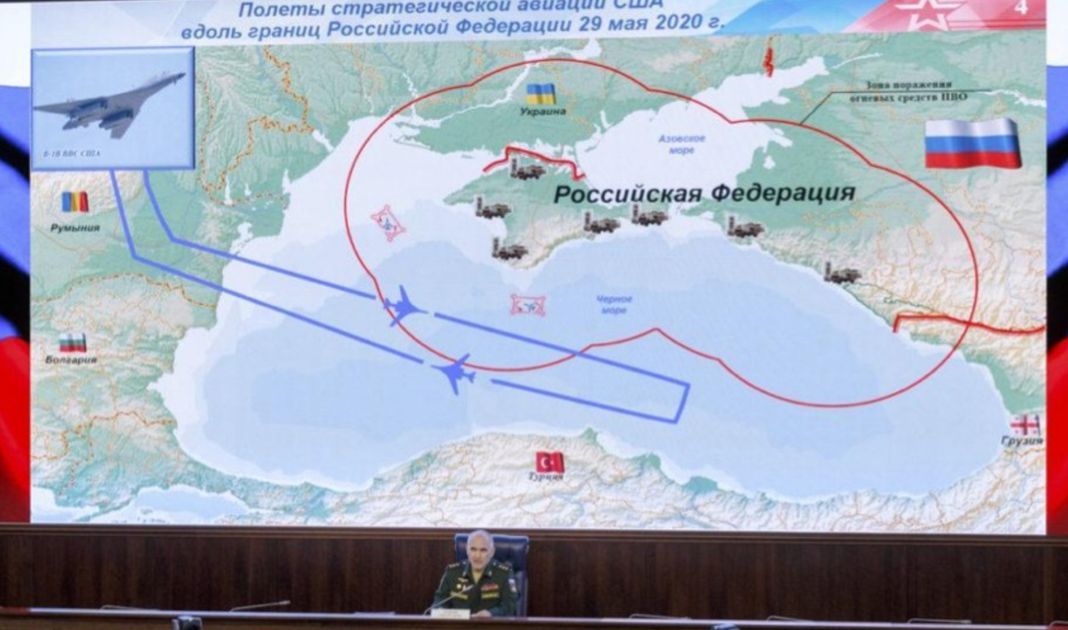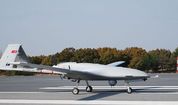Intermarium Weekly 02-09.06.2020

Ukraine
Ukrainian-French Cooperation
Five new patrol boats for the State Border Guard Service of Ukraine under the license of the French company OCEA will be built in Mykolaiv at the privately-owned Nibulon Shipyard. Such a choice was an initiative of the French side, which analyzed the capabilities of the existing shipbuilding capacity of Ukraine. The only plant that was able to work with marine aluminum and produced vessels of this class was the Feodosiya plant “More”, which is located in the territories currently occupied by pro-Russian separatist forces. Therefore, the contract between the State Border Guard Service and the French company OCEA explicitly stipulates the manufacture of 5 ships out of 20 at the Ukrainian enterprise. The total value of the contract will be 136.5 million euros. According to preliminary plans, the State Border Guard Service will be able to receive the first patrol boat next year, and in 2023 the contract should be completed. In all likelihood, the French company is going to build the project of the 32-meter multipurpose fast patrol boat – OCEA FPB 98 MKI.
Ukrainian -Pakistani Cooperation
Ukraine won the tender for the repair of the Il-78 aerial refueling aircraft belonging to the Pakistan Air Force. The contract was signed between the state-owned Ukrspetsexport and the Procurement Department of the Pakistan Air Force. The repair of the aircraft will be carried out by the Nikolaev Aircraft Repair Plant. As a result of the first contract, Pakistan plans to conclude the next package of contracts for the overhaul of two more Il-78s. This information has been confirmed by the Pakistan Air Force. The total cost of repair and modernization of the Pakistani IL-78 will be more than $30 million. The contract will provide the enterprise with work and currency inflow to Ukraine.
Russia undertakes military drills in annexed Crimea
On June 2, spokesman of the Black Sea Fleet of the Russian Federation Alexei Rulev stated that 37 surface vessels of the Black Sea Fleet took to the sea to conduct a naval exercise. On June 4, the press service of the Black Sea Fleet announced that aerial assets belonging to the Russian Black Sea Fleet Southern Military District would check the readiness of the regular forces and air defense systems. As a part of the exercise, training was conducted with the participation of the S-400 anti-aircraft missile systems divisions and calculations of SHORAD “Pantsir-S” system to repel the attack of the conventional enemy aircraft. Su-27, Su-30SM, Su-24, Mi-8, and Ka-27 helicopters took up the OPFOR role. In total, about 10 planes and helicopters were involved in the exercise. Simulated missile launches from Triumph and Armor systems were also carried out. In addition, Coast Guard units were also involved in the milex. Crews of tanks and armored personnel carriers (APC) including BTR-82 and T-72B3 belonging to the coastal defense units were working on defensive and offensive operations in the territory of the Crimean peninsula.
Ukrainian-Romanian Military Cooperation
The Ukrainian and Romanian navies conducted joint exercises in the Black Sea as part of a joint PASSEX training with the participation of the Ukrainian patrol boat Starobilsk (P191) and the Romanian corvette Contradmiral Horia Macellariu (F-265). During joint maneuvers on the high seas, the two vessels have completed a number of interoperability tasks in line with NATO standards. The main focus of the exercise was improving the skills and procedures of crews while performing tasks within the formation. The warships practiced complex and tactical maneuvering at sea, practicing establishing and maintaining communications in accordance with NATO standards.
Ukraine’s Economic Situation
The economic situation is going to deteriorate in the country, regardless of which of the multiple forecasts are to be believed. The Ministry of Economic Development and Trade of Ukraine analyzed the GDP data in the country from January to April. According to the agency, the decline in gross domestic product was 5%. Bank of America downgraded its forecast for Ukraine’s GDP to fall by 6.8% in 2020. One of the proposed recommendations is to open the Ukrainian land market for foreign investors. Zelensky has promised to protect foreign companies that are ready to sign long-term lease agreements in Ukraine.
Ukraine and Israel
Ukraine and Israel have launched political consultations via videolink to discuss a new Free Trade Agreement. President Vladimir Zelensky has previously called on Israel to speed up the ratification process. It should be noted that the Verkhovna Rada adopted the law “On Ratification of the Free Trade Agreement between the governments of two states” on July 11, 2019. According to the text of the document, the agreement concluded on January 21, 2019, in Jerusalem will enter into force 60 days after the date of receipt of the diplomatic note, by which time the parties notify each other of the completion of the relevant domestic legal procedures. The Free Trade Agreement stipulates that Israel abolishes about 80% of import duties on Ukrainian industrial goods and more than 9% on agricultural products. At the same time, Ukraine abolishes about 70% of import duties on Israeli industrial products and more than 6% for agricultural goods. Israel promised to intensify the adaptation of the agreement.
De-industrialization…
Ukraine continues to decrease its share of energy from nuclear power plants. This week the Zaporizhzhya Nuclear Power Plant has put unit №6 in reserve due to balance restrictions in the Ukrainian power system. At the moment, only 2 power units of Zaporizhzhya NPP are in operation. The total capacity of the generators is 2,000 MW. Zaporizhzhya NPP is the largest energy facility in Ukraine and Europe with an installed capacity of 6,000 MW. It seems that the de-industrialization of Ukraine is continuing.
Ukraine hopes to join Eastern European transportation projects
After the completion of the construction of the shipping canal across the Vistula Spit, Ukraine hopes to use the seaports of the Vistula Bay for the import and export of its products. Poland’s neighboring countries, Ukraine and Belarus, will be able to use these seaports to import and export their products after the completion of the construction of a shipping canal across the Vistula spit. The head of the Polish President’s Office Krzysztof Szczerski stated that “Open access to the ports of the Vistula Gulf will mean access to international seas for our partners from the east – Belarus and Ukraine, which will have an alternative port for import and export of their goods”. According to Szczerski, from the point of view of Poland’s sovereignty, the construction of the canal is of great importance, as it will be located on the border between NATO’s eastern flank and the alliance’s neighbors in the east. The total length of the new waterway will be 22.9 km.
China and Ukraine
A subsidiary of the Chinese machine-building corporation CRRC, which is the world’s largest supplier of rail transport equipment, has won an open international tender for the supply of subway trains for the Kharkiv metro lines. The winner of the tender is CRRC Tangshan, based in Tangshan City, Hubei Province, North China. The deal should be completed in 35 months; KP “Kharkiv Metro” will buy 40 subway cars from CRRC Tangshan. The total price of the project is said to be 44 million euros. In Ukraine already some enterprises stood against such a decision of local authorities. It’s worth noting that Kharkiv is widely regarded as the most pro-Russian region in Ukraine.
Inland river transport system of Ukraine
In order to develop the inland river transport system of Ukraine two main things have to be done. Firstly, a law for international investments needs to be prepared and secondly, necessary infrastructure has to be created. An important step was taken recently when the Ukrainian company “NIBULON” was established in Dnipro to provide a modern river transshipment terminal at the Zelenodolsky branch in the village of Maryanskoye, Dnipropetrovsk region.
China and Europe
In May, China shipped a record number of rail freight trains to Europe. The main destinations for transportation were Belarus, Russia, Belgium, Hungary, Spain, Italy, Lithuania, the Netherlands, Poland, France, Germany, and the Czech Republic. In May this year, China sent 1 thousand trains to Europe. 33 container railway trains, which is 43% more on an annualized basis. A total of 93 thousand containers were transported, an increase over May 2019 of 48%. For example, a train is destined for France with 41 containers of medical cargo. Its arrival in Paris is expected in 20 days, which is 2 times faster than by sea. 40 million medical masks, gloves, gowns, gel dispensers and other protective equipment for hospital staff were loaded into the containers. The train follows the southern transit route through Kazakhstan, operated by OTLK ERA. The Chinese companies COSCO and CRCT will provide forwarding on the territory of the People’s Republic of China, on the territory of 1520 – Russian Railways Logistics, on the territory of Europe – SNCF Forwardis (a subsidiary of SNCF, the national company of the French railways).
Belarus and the “Slipper revolution”
Last Friday OMON arrested one of the main initiators of the social movement – Syarhei Tikhanousky. This week the militia searched the blogger’s mother’s dacha and informed that they found $900,000 in cash. Arrests and searches among people connected with Tikhanousky and other opposition candidates are ongoing throughout the country. The adoption of forceful methods is indicated by one more important event. President Lukashenka dismissed Prime Minister Sergei Rumas and some ministers on Wednesday. A day later, Raman Halouchanka, the former head of the Belarusian armed forces and former ambassador to the United Arab Emirates and Saudi Arabia, was appointed to this post. During the meeting following the nomination of the new Prime Minister, Lukashenko said, among other things, that some of the potential candidates want to destroy the country with foreign money. He also recalled the history of the pacification of the opposition by President Karimov in Uzbekistan and President Rahmon in Tajikistan. A few days earlier, during a meeting with the head of the KGB, the president spoke about the fact that he is aware that there are people in the country who want to repeat the Ukrainian scenario, but there will be no Mayday in Belarus. The increasingly visible turn towards forceful solutions will weaken the president’s position in the country, whose society is increasingly demanding changes. The pacification of the candidates will probably also lead to a cooling of relations with the EU, and perhaps even to the imposition of sanctions. Such a scenario would mean that the only direction that would remain open for Lukashenko would be Russia.
Orban in Minsk
It is interesting that the Prime Minister of Hungary Victor Orban recently visited Minsk despite the Coronavirus and that such a visit was a historic first. Alexander Lukashenka praised Orban for having taken such a “bold step.” Both leaders agreed for an intensification of relations. Orban, for example, stated that the EU must stop sanctions against Belarus. In his opinion, after the normalization of the epidemiological situation and the resumption of economic activity, a new stage will begin in the cooperation of the European Union and the Eurasian Economic Union, and this will constitute a key development for the region. Currently, the two countries have a trade turnover of around 250 million Euro and they promised to increase this to 500 million. Strikingly, both countries are closely cooperating with Russia to build nuclear power plants and they used the visit as an opportunity to sign a memorandum of cooperation in the field of electricity. This document consolidates the mutual interest of Belarus and Hungary in cooperation in the nuclear energy sector and is aimed at developing contacts between organizations whose activities are related to the construction of nuclear power plants. Belarus hopes for collaboration with Hungary as a promising partner and is ready to take part in the project on the construction of two nuclear power plants in Hungary by “Rosatom.” Lukashenka reiterated his country’s commitment to improving relations with the EU and NATO and a peaceful resolution of the conflict in Eastern Ukraine. Moreover, Lukashenka let slip that the two leaders discussed the issue of identities after the Corona-crisis, and they agreed that the issue of national identities will only increase in the near future especially in Europe. Orban and Lukashenka repeated several times that they are against interference of some European states into internal affairs of sovereign countries.
The diplomatic relations of Minsk with foreign countries were not limited only to Hungary. Belarus and Germany held a meeting of the strategic advisory group in a video conference format. U.S. representatives had a meeting with Belarusian diplomats and once again discussed the issue of opening the U.S. Embassy in Minsk. Between Russia and Belarus, relations have been resumed within the Union State framework. This week, meetings of the High-Level Group of the Council of Ministers of the Union State were held. Russia promised to reconsider gas prices for Belarus and lowering some economic tariffs.
The Russian news agency “RIA Novosti” sent an official query to the Ministry of Defense of Belarus to ask about relations between NATO and Minsk and about the possibility of joint military exercises. The Ministry replied with the following formulation: Belarus does not plan joint exercises with the North Atlantic Alliance and their implementation is not possible due to restrictions imposed by NATO. At the same time, it should be noted that Belarus is conducting different military exercises with NATO members, for example with Great Britain within the UN framework.
Minsk and U.S. work towards energy diversification
On June 5, a tanker carrying 77 thousand tons of Bakken American oil arrived at Klaipeda port and began to unload. Further oil will be directed by rail to the Novopolotsk refinery – Naftan OJSC. This is the 12th tanker delivery this year sourced from non-Russian suppliers. The total volume of tanker deliveries has already exceeded 1 million tons of oil. The tanker left the port of Beaumont (Texas) on May 16. The transaction was concluded with the participation of United Energy Trading, an American trader, as well as with the assistance of Getka, an American company and their Polish partner UNIMOT.
Nord Stream 2
A group of US senators presented a project to extend the sanctions associated with the construction of Nord Stream 2. The sanctions currently in place have forced the Swiss company Allseas to withdraw from the project and have forced Russian Gazprom to lay the missing 160 kilometers of the pipeline itself. This has led to a significant delay and cost increase in the investment. The new sanctions provide penalties for all companies involved in the pipeline laying process, offering insurance for these companies and providing port services to the ships involved in the project.
Poland
Poland hopes that part of the American troops that reportedly will be withdrawn from Germany will be redeployed to its territory, thereby further increasing the US military contingent in the country, as stated explicitly by Prime Minister Mateusz Morawecki. Morawiecki called the increase in the numbers of US military in Poland “the strengthening of the eastern flank of NATO.” According to Morawiecki, about 5 thousand US military are currently stationed in Poland, yet he considers this number to be insufficient. “The real danger is beyond the eastern border”, added Morawiecki.
U.S.- Polish military conducting military drills “Allied Spirit”
Allied Spirit is a 7th Army Training Command-conducted, U.S. Army Europe-directed multinational exercise series that focuses on exercising tactical interoperability and testing secure communications among NATO alliance members. The current iteration of Allied Spirit is linked to DEFENDER-Europe 20 Plus and will take place at Drawsko Pomorskie proving grounds, Poland, June 5-19. The modified Allied Spirit key objectives are to employ a division size element to conduct a deliberate river crossing, demonstrate U.S. Army Europe’s ability to integrate with and leverage joint, alliance and host nation capabilities, establish and exercise theater architecture, including mission partners from tactical to theater levels, and to enable an effective common intelligence operational picture.
Poland and Ukraine
The gas operators of Ukraine and Poland (Gaz-System) have merged two existing points of interstate connection – “Drozdovichi” and “Germanovich” – into a single virtual point “VTS-Ukraine-Poland”. The creation of a virtual point will greatly simplify the import of gas to Ukraine from the Polish direction and strengthen Ukraine’s energy security. According to the head of the Gas Transmission System Operator of Ukraine Sergei Makogon – “Poland is our important partner and a very attractive market, as there is an LNG terminal, gas pipelines are being built to Lithuania and Norway, which will allow Ukraine to access this gas resource. Ukraine is already ready to accept up to 6.6 billion cubic meters of gas a year from the Polish GTS, but we will be able to reach these volumes only after the completion of a number of GTS reconstruction projects on Polish territory”. Ukraine and Poland continue to cooperate on sending the Ukrainian workforce to Poland. On June 7, two planes from Ukraine arrived at Warsaw’s Chopin Airport, bringing 186 Ukrainian workers to Poland.
Baltic States
The Lithuanian reaction to the U.S. decision to withdraw troops from Germany
The Lithuanian Defense Minister expects that some of the troops that the United States plans to withdraw from Germany will stay in Europe. He stated that the movement of troops is constantly taking place in Europe; therefore, Lithuania has no reason to think that the announced reduction of the number of military personnel in Germany means a decreasing US commitment to European security and would welcome a redeployment of US troops to Poland. According to him, Vilnius hopes that not all of the military personnel relocated from Germany will leave Europe and Lithuania remains confident about a continuation of US commitments to European security and of the strong transatlantic connection. However, the head of Lithuania’s MFA stressed that it’s important not to “dramatize” the US move, as the American presence has grown in the region in recent years.
Allied military exercises in the Baltic Sea
International NATO and allied military exercises in the Baltic Sea “Baltops 2020” began on June 8. The training will run until 16 June and will involve about 3,000 troops, 28 ships and 28 airplanes and helicopters. Latvian marine forces are also participating. The aim of the training this year is to promote cooperation and interoperability between armies of allied countries and to strengthen rapid response skills. At the same time, the armed forces will demonstrate the countries’ commitment to stability in the region and readiness to defend. This year, the drills will involve fewer troops and will take place exclusively at sea to reduce the risks of the pandemic. All participating troops have been tested for Covid-19 and amphibious landings have been canceled.
Baltic States and China
The framework of relations between China and the Baltic States is perhaps not as stable as China would like to see, and furthermore, the importance of these countries for the Chinese grand strategy for China is not primary, but it has significance in Chinese plans of building a Eurasian connectivity system. In Eastern Europe, the voice of the Baltic States has serious grounds and it is impossible to merely avoid them. In recent months, the Chinese topic became quite hot in these countries and the main reason is because of the rise of geopolitical rivalry between Washington and Beijing. For example, a group of Lithuanian lawmakers has proposed granting asylum to “Hong Kong people who might face persecution and repressions from China”. A draft resolution expressing concern over Beijing’s plans to impose a new national security law in Hong Kong has been proposed by 36 Lithuanian lawmakers from different parliamentary groups. The bill was submitted by Gabrielius Landsbergis, leader of the opposition Conservative party, Viktorija Čmilytė-Nielsen, leader of the Liberal Movement, as well as other lawmakers, mainly from opposition groups. Last week, the Chinese parliament backed a proposal to bypass the Hong Kong legislature and impose a new national security law. Critics are concerned this move might do away with the freedom of speech and political opposition in the semi-autonomous territory. The draft resolution also calls on the Lithuanian president and government to support the rights and freedoms of Hong Kong by “defending in a principled manner the international rule of law within the European Union’s political bodies”.
Autor
Ridvan Bari Urcosta
Senior Analyst at Strategy&Future






Trwa ładowanie...